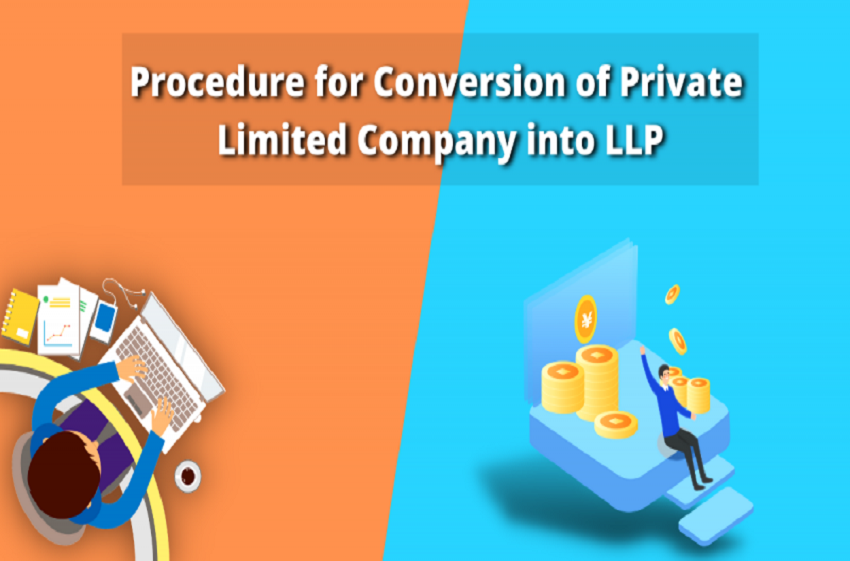fter successfully registering a Limited Liability Partnership (LLP), there are a few post-registration formalities that must be completed to ensure that the LLP is compliant with all legal and regulatory requirements. These formalities include obtaining a Permanent Account Number (PAN) and Tax Deduction and Collection Account Number (TAN), opening a bank account in the name of the LLP company registration, registering for Goods and Services Tax (GST), obtaining other licenses and permits, complying with legal and regulatory requirements, filing annual returns and statement of accounts, maintaining proper books of accounts, passing resolutions, notifying changes to the Registrar, and winding up and dissolution of an LLP.
Obtaining Permanent Account Number (PAN) and Tax Deduction and Collection Account Number (TAN)
Obtaining a PAN and TAN is the first and most crucial post-registration formality for an LLP. PAN is a unique 10-digit alphanumeric number issued by the Income Tax Department to every person who is required to file income tax returns. On the other hand, TAN is a unique 10-digit alphanumeric number issued by the Income Tax Department to entities that are required to deduct or collect tax at source.
To obtain a PAN and TAN for an LLP, an application must be made to the Income Tax Department in the prescribed format, along with supporting documents such as the certificate of incorporation, partnership agreement, and identity and address proof of the partners.
Opening a Bank Account in the Name of the LLP
Once the LLP has obtained its PAN and TAN, the next step is to open a bank account in the name of the LLP. The bank account must be opened with a bank that is authorized by the Reserve Bank of India (RBI) to provide banking services to LLPs. The documents required to open a bank account include the certificate of incorporation, PAN and TAN of the LLP, partnership agreement, identity and address proof of the partners, and the address proof of the registered office of the LLP.
Registering for Goods and Services Tax (GST)
If the annual turnover of the LLP exceeds Rs. 40 lakhs, it is mandatory to register for Goods and Services Tax (GST). The GST registration process is entirely online, and the LLP must provide its PAN, TAN, bank account details, and other relevant information while registering for GST. Once the registration is complete, the LLP will be issued a unique GST identification number (GSTIN), which must be mentioned on all invoices and returns filed by the LLP.
Obtaining Other Licenses and Permits
Depending on the nature of the business, the LLP may be required to obtain additional licenses and permits from various government authorities. For instance, if the LLP is involved in the manufacturing or sale of goods, it may be required to obtain a license from the relevant state government or the central government. Similarly, if the LLP is involved in providing professional services, it may be required to obtain a license from the relevant professional body.
Complying with Legal and Regulatory Requirements
An LLP must comply with various legal and regulatory requirements to ensure that it operates within the framework of the law. For instance, the LLP must maintain proper books of accounts, prepare financial statements, and file income tax returns and annual returns with the Registrar of LLPs. The LLP must also comply with the requirements of the Limited Liability Partnership Act, 2008, and other applicable laws.
Filing Annual Returns and Statements of Accounts
An LLP is required to file annual returns and statements of accounts with the Registrar of LLPs every year. The annual return contains information such as the name and address of the LLP, the partners’ details, and the LLP’s financial performance during the year. The statement of accounts contains information such as the balance sheet and profit and loss account of the LLP for the financial year. The annual return and statement of accounts must be filed within 60 days and 30 days, respectively, from the end of the financial year.
Maintaining Proper Books of Accounts
Maintaining proper books of accounts is essential for an LLP as it helps to keep track of financial transactions and comply with legal and regulatory requirements. The books of accounts must be maintained in accordance with the Generally Accepted Accounting Principles (GAAP) and must contain information such as the day-to-day transactions, cash inflows and outflows, and the financial position of the LLP.
Resolutions to be Passed After Registration
After registration, the LLP must pass certain resolutions to formalize its operations and decision-making process. These resolutions include:
- Adoption of the partnership agreement.
- Appointment of designated partners and their roles and responsibilities.
- Authorization for opening and operating the bank account.
- Appointment of auditors, if required.
- Approval of the LLP’s financial statements and allocation of profits.
- Approval of any changes to the partnership agreement or LLP’s operations.
Notifying Changes to the Registrar
An LLP must notify the Registrar of LLPs of any changes to its details, such as the change of partners, change of registered office address, change in the partnership agreement, or any other significant changes. The changes must be notified within 30 days of the change taking place.
Wind-Up and Dissolution of an LLP
If an LLP wishes to wind up and dissolve its operations, it must follow the legal and regulatory requirements prescribed under the Limited Liability Partnership Act, 2008. The LLP must appoint a liquidator to manage the winding-up process, prepare a statement of affairs, and settle all the debts and liabilities of the LLP. Once the winding-up process is complete, the LLP can apply to the Registrar of LLPs for dissolution.
Post-registration formalities are often overlooked by entrepreneurs and business owners, who tend to focus on the registration process and neglect the importance of complying with legal and regulatory requirements. However, non-compliance can result in penalties and legal action, which can be detrimental to the LLP’s reputation and financial position.
Obtaining a PAN and TAN is crucial as it helps the LLP comply with income tax regulations and enables it to deduct or collect tax at the source. It also helps in opening a bank account, which is necessary for the day-to-day operations of the LLP. A GST registration is mandatory if the LLP’s annual turnover exceeds Rs. 40 lakhs and can help the LLP avail input tax credit and simplify its tax compliance process.
Obtaining other licenses and permits is also essential, depending on the nature of the business. For instance, a manufacturing or trading business may require a license from the central or state government, while a professional services business may require a license from the relevant professional body. Failure to obtain the necessary licenses and permits can result in legal action, which can be time-consuming and costly.
Conclusion
Post-registration formalities for LLP registration India are crucial to ensure that the LLP complies with all legal and regulatory requirements and operates within the framework of the law. Obtaining a PAN and TAN, opening a bank account, registering for GST, obtaining other licenses and permits, complying with legal and regulatory requirements, filing annual returns and statements of accounts, maintaining proper books of accounts, passing resolutions, notifying changes to the Registrar, and winding up and dissolution of an LLP are some of the critical post-registration formalities that must be completed by an LLP. By following these formalities, an LLP can ensure that it operates in a transparent and compliant manner, which can help build its credibility and reputation in the market.













